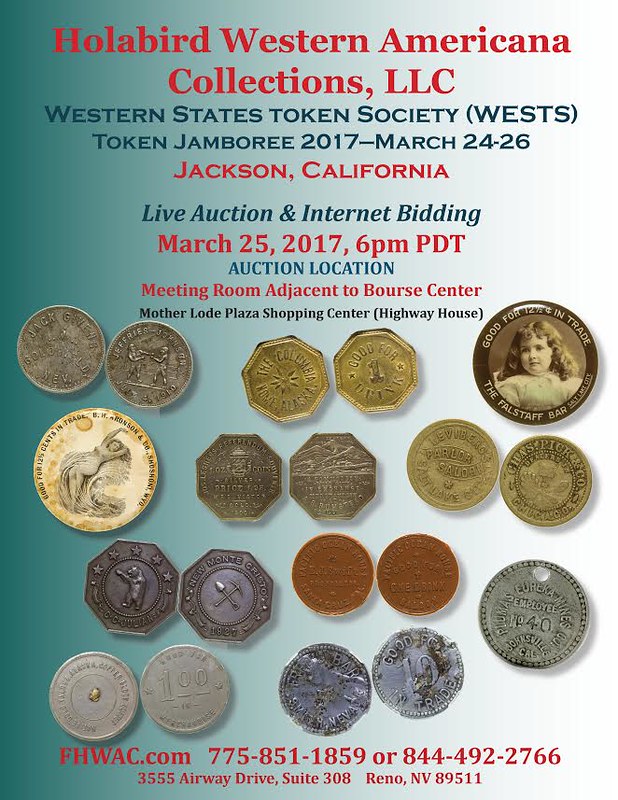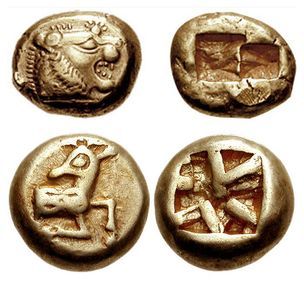
PREV ARTICLE
NEXT ARTICLE
FULL ISSUE
PREV FULL ISSUE
NATIONAL GEOGRAPHIC: THE POWER OF MONEYEd Krivoniak of Pittsburgh writes: There is a new program coming on the National Geographic channel this Monday, March 20, 2017 at 9 P.M. It is called "The Power of Money" and is part of their series "Origins: The Journey of Mankind". The first two episodes will be repeated in the two hours prior to this show and this show itself will be repeated on the 20th at 11 P.M. and again on the 24th of March at the same two times. They will probably get into where and why the concept of money was first developed. Thanks, Ed. Here's an excerpt from an article on the series' web page. -Editor
Those humble little ceramic shapes might not seem have much in common with today’s $100 bill, whose high-tech anti-counterfeiting features include a special security thread designed to turn pink when illuminated by ultraviolet light, let alone with credit-card swipes and online transactions that for many Americans are rapidly taking the place of cash. But the roots of those modern modes of payment, may lie in the Sumerians’ tokens. Such early accounting tools ultimately evolved into a system of finance and money itself —a symbolic representation of value, which can be transferred from one person to another as a payment for goods or services. Civilization existed before money, but probably wouldn’t have gotten very far without it. Ancient humans’ invention of money was a revolutionary milestone. It helped to drive the development of civilization, by making it easier not just to buy and sell goods, but to pay workers in an increasing number of specialized trades—craftsmen, artists, merchants, and soldiers, to name a few. It also helped connect the world, by enabling traders to roam across continents and oceans to buy and sell goods, and investors to amass wealth. Over the centuries, money continued to evolve in form and function. The ancient world’s stones and shells gave way to coins, and eventually to paper currency and checks drawn upon bank accounts. Those physical tokens, in turn, gradually are being superseded by electronic ones, ranging from credit card transactions to new forms of digital currency designed for transferring and amassing wealth on the Internet. What is it that truly separates humans from animals? Is it the opposable thumb and the ability to use tools? Is it language? Farming? There are arguments to be made for and against each candidate criteria; there are many examples of animals who use primitive tools and language, for example. And humankind farmed for millenia without further significant advances in civilization. When did modern life as we know it "take off"? When people began trading. It was trade that built civilization - those simple exchanges of goods and services that benefit both parties. Trade leads to specialization, and specialization leads to vast improvements in quality and efficiency. And money is what turbocharges trade. The concept of a common medium of exchange simplifies everything. Shoe sellers don't need a "Will trade shoes for food" sign - they sell their goods to people who need shoes, and in turn use the money to pay for the food their families need. Everyone benefits. Check out the series, and let us know what you think. -Editor To read the complete article, see:
For more information on the series, see:
 Wayne Homren, Editor The Numismatic Bibliomania Society is a non-profit organization promoting numismatic literature. See our web site at coinbooks.org. To submit items for publication in The E-Sylum, write to the Editor at this address: whomren@gmail.com To subscribe go to: https://my.binhost.com/lists/listinfo/esylum All Rights Reserved. NBS Home Page Contact the NBS webmaster 
|
